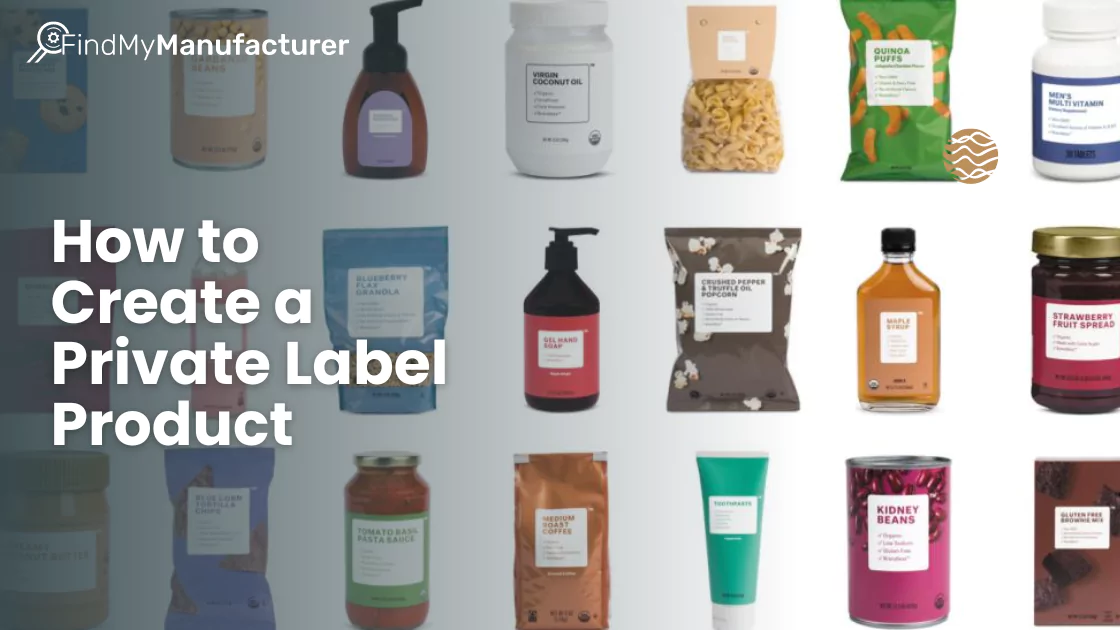Private label products have become a strategic necessity for businesses aiming to carve out a unique niche, establish a distinctive brand identity, and cultivate consumer loyalty. More than the mere affixation of a logo onto generic merchandise, the success of a private label product hinges on a strategic synthesis of meticulous planning, a deep comprehension of market dynamics, and a relentless pursuit of product excellence. This multifaceted approach is essential for businesses seeking to differentiate themselves and navigate the competitive landscape effectively. It involves an intricate dance between understanding consumer needs, predicting market trends, and delivering products that not only meet but exceed expectations.
In the exploration of this article, we delve into the critical components that form the blueprint for a successful private-label product. From the initial stages of market research and consumer understanding to the final steps of effective branding and packaging, each element is a vital brushstroke on the canvas of success. By comprehensively examining these essential factors, businesses can chart a course that leads to the creation of private label offerings that resonate with consumers, foster brand loyalty, and ultimately stand out amidst the myriad choices in today’s bustling and competitive market.
Before we move ahead, check out our blog that helps you understand the benefits of private label products.
Market Research and Consumer Understanding

Market research and consumer understanding stand as the bedrock of successful private label product creation. Conducting comprehensive market research allows businesses to delve deep into the dynamics of their target audience, gaining invaluable insights into consumer preferences, behaviors, and unmet needs. By understanding the nuances of the market, businesses can identify gaps, untapped opportunities, and emerging trends, providing a strategic foundation for crafting a private label product that resonates with consumers. This proactive approach not only helps in aligning the product with the current demands of the market but also enables businesses to anticipate future shifts, fostering a more resilient and adaptable product strategy.
Furthermore, consumer understanding is paramount in tailoring the private label product to meet the specific needs and desires of the intended audience. Analyzing demographics, psychographics, and purchasing behaviors allows businesses to create products that align seamlessly with the lifestyle, values, and expectations of their target consumers. Whether it’s developing a product with unique features or addressing pain points overlooked by competitors, a deep understanding of the consumer landscape empowers businesses to offer solutions that go beyond mere functionality, establishing an emotional connection that fosters brand loyalty and distinguishes the private label product in a crowded market.
Unique Value Proposition (UVP)
Crafting a compelling Unique Value Proposition (UVP) is instrumental in shaping the success of a private label product. In a market inundated with choices, a UVP serves as the product’s unique fingerprint, distinguishing it from competitors and capturing consumers’ attention. Whether it’s an innovative feature, superior quality, eco-friendly practices, or an exceptional customer experience, a well-defined UVP communicates the distinct value that the product brings to the consumer. This differentiation attracts initial attention and lays the foundation for building brand loyalty, as consumers are more likely to engage with and remember a product that offers something truly unique and valuable.
Moreover, a strong UVP gives businesses a strategic advantage in positioning their private label product in the market. By clearly articulating the benefits and advantages that set the product apart, businesses can effectively target their desired audience and create a compelling narrative that resonates with consumer needs. The UVP becomes a powerful tool in marketing efforts, enabling companies to communicate why their private label product is superior, fostering consumer trust, and increasing the likelihood of initial purchases and repeat business. In essence, a well-crafted UVP is not just a marketing tactic but a key driver in the success and longevity of a private label product in a competitive marketplace.
Quality Assurance and Testing
Quality assurance and testing play a pivotal role in the creation of a successful private label product. The assurance of consistent and high-quality products is not only a hallmark of brand integrity but also a crucial factor in establishing and retaining customer trust. Rigorous quality control measures, starting from the selection of raw materials to the final production stages, ensure that the private label product meets or exceeds industry standards. Through systematic testing, businesses can identify and rectify any deviations from quality benchmarks, preventing subpar products from reaching the market and safeguarding the brand’s reputation.
Investing in quality assurance not only ensures that the private label product aligns with consumer expectations but also minimizes the risk of recalls and costly product issues. Comprehensive testing should encompass various aspects, including durability, safety, and functionality, depending on the nature of the product. By adhering to stringent quality control procedures, businesses meet regulatory requirements and demonstrate a commitment to delivering a superior product, fostering positive customer experiences, and increasing the likelihood of brand loyalty. In a competitive market, where consumers increasingly prioritize quality, businesses prioritizing quality assurance and testing position themselves for long-term success and customer satisfaction.
Strategic Pricing
Strategic pricing is a cornerstone in successfully creating and positioning a private label product in the market. Careful consideration of pricing factors, including production costs, competitor pricing, and perceived value, is essential for balancing affordability and profitability. Setting a price that reflects the perceived value of the private label product establishes a competitive edge and influences consumer perceptions. It’s crucial to conduct a thorough analysis of the market to understand price sensitivities, consumer behaviors, and the pricing strategies of competitors. By aligning the product’s price point with consumer expectations and delivering value for money, businesses can attract their target audience and foster a positive perception of the private label brand.
Furthermore, strategic pricing is instrumental in achieving broader business objectives, such as market penetration, customer acquisition, and maximizing revenue. A well-thought-out pricing strategy allows businesses to position their private label products strategically in the market, whether as a budget-friendly alternative, a premium offering, or a mid-range option. Flexibility in pricing models, such as promotional discounts or bundling options, can also be leveraged to respond to market dynamics and consumer preferences. Ultimately, strategic pricing is a dynamic aspect of the private label product creation process that requires ongoing evaluation and adjustment to remain responsive to market conditions and maintain a competitive edge.
Effective Branding and Packaging
Effective branding and packaging are integral elements in the successful creation of a private label product, playing a crucial role in capturing consumer attention, conveying brand identity, and influencing purchasing decisions. The packaging serves as the first point of contact between the product and the consumer, making it a powerful tool for making a positive and lasting impression. Thoughtful and visually appealing packaging not only enhances the perceived value of the product but also communicates the brand’s commitment to quality and attention to detail. By investing in distinctive and memorable packaging, businesses can differentiate their private label products on the shelves, creating a strong visual presence that draws consumers in and encourages brand recognition.
Branding goes beyond just a logo; it encapsulates the entire narrative and personality of the product. An effective brand strategy for a private label product involves creating a cohesive visual identity, communicating the product’s unique value proposition, and fostering a connection with the target audience. Branding influences consumer perceptions, builds trust, and contributes to long-term brand loyalty. Consistency in branding across various touchpoints, including packaging, marketing materials, and online presence, reinforces the brand image and ensures a unified and compelling identity. In the competitive retail landscape, where consumers are often overwhelmed with choices, effective branding, and packaging are powerful tools that can elevate a private label product from a mere commodity to a sought-after brand.
Read our blog: Mastering Packaging Design: 20 Expert Tips for Exceptional Results
Conclusion
Creating a successful private label product requires a holistic approach that encompasses market research, quality assurance, strategic pricing, effective branding, and responsive customer service. By focusing on these key elements and maintaining adaptability in the ever-changing market, businesses can position their private label products for long-term success and recognition in the competitive retail arena.
Brands are increasingly turning to platforms like Find My Manufacturer to discover and collaborate with top-tier private label manufacturers, propelling their journey toward successful product creation. This innovative platform catalyzes seamless connections between businesses and manufacturing experts, streamlining the often complex process of sourcing and production. By leveraging Find My Manufacturer, companies gain access to a curated network of industry-leading partners, fostering collaborations that enable the creation of high-quality, customized products aligned with their brand vision. The platform’s comprehensive approach not only accelerates the search for suitable manufacturing partners but also facilitates efficient and fruitful engagements, ultimately contributing to the overall success of businesses in the competitive landscape of product manufacturing.
